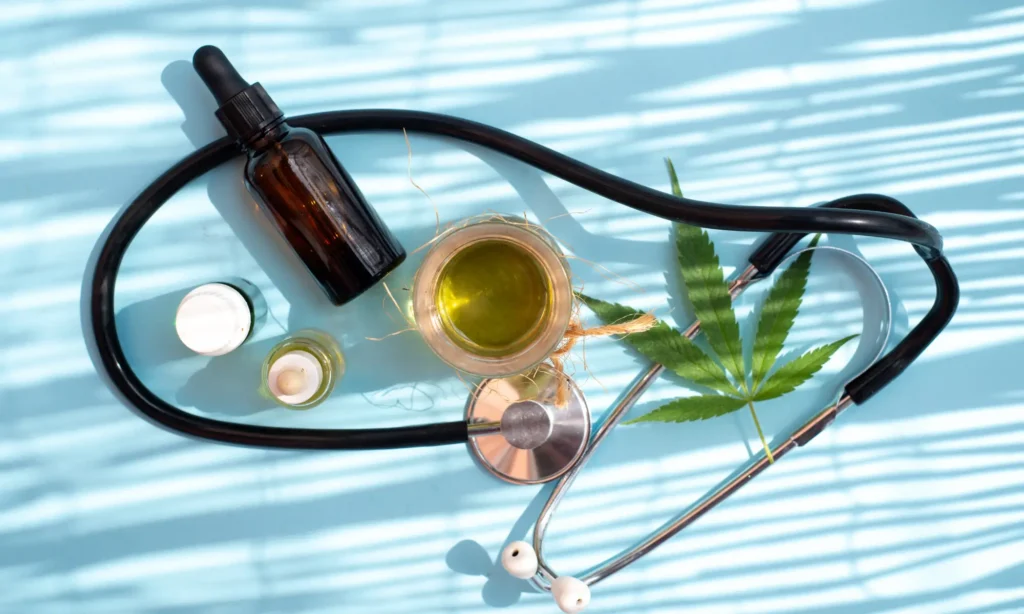
THC Addiction ABCs
Marijuana has become the most popular and most consumed drug in the US, Canada, and even Europe given its legal status in several countries/states for recreational purposes.
Despite this, most people seem to be forgetting and or ignoring that cannabis addiction is a real thing and a real condition. Heavy use of marijuana can turn what started as a way to entertainment into a physical and mental dependence.
Cannabis is a flower that contains psychoactive compounds called cannabinoids, namely delta-9-tetrahydrocannabinol (THC). Certain cannabinoids are psychoactive, that is, they have effects on the brain that alter mood or awareness.
The THC in marijuana activates areas of your brain that control pleasure. It also triggers your own “feel good” chemical dopamine, which gives you the happy, relaxed sensation or “high”.
The concentration of THC in marijuana varies and is at its strongest ever. The typical THC content in marijuana is 15%, compared to around 4% in the mid-1990s.. And products popular with adolescents such as edibles and oils can contain well over 50%.
This greatly enhances the effect on your body and mind, with one study indicating a higher likelihood of developing cannabis use disorder and psychosis, although findings were inconsistent for depression and anxiety.
Several specialists think that the majority of individuals can utilize it without major adverse effects, much like indulging in occasional alcoholic beverages. Although cannabis can have beneficial therapeutic applications, some individuals may develop a tolerance to its effects, necessitating higher doses for desired results.

Effects of THC on the Body and Brain
The effects of using cannabis can be felt within seconds to minutes of smoking, vaporizing, or dabbing cannabis. These effects can last up to 6 hours or longer.
If you eat or drink cannabis, these effects can occur within 30 minutes to 2 hours and can last up to 12 hours or longer.
Short-term Effects on the Brain
The short-term effects of cannabis on the brain can include:
- Confusion
- Sleepiness (fatigue)
- Impaired ability to:
- Remember
- Concentrate
- Pay attention
- Anxiety, fear or panic
- Reduced ability to react quickly
- Cannabis use can also result in psychotic episodes characterized by:
- Paranoia
- Delusions
- Hallucinations
There is also evidence to suggest that combining tobacco with cannabis can increase:
- The strength of some psychoactive effects
- The risk of poor mental health outcomes, including dependence
Short-term Effects on the Body
The short-term effects of cannabis on the body can include:
- Damaged blood vessels caused by the smoke
- Decreased blood pressure, which can cause people to faint or pass out
- Increased heart rate, which can be a danger for people with heart conditions and can lead to an increased risk of heart attack
THC can be dangerous because it affects your:
- Coordination
- Reaction time
- Ability to pay attention
- Decision-making abilities
- Ability to judge distances
Long-term Effects on the Brain
Long-term effects develop gradually over time with frequent use (daily or near-daily) that continues over weeks, months or years. These effects can last from several days to months or longer after you stop using cannabis.
The long-term effects of cannabis on the brain can include an increased risk of addiction and harm to your:
- Memory
- Concentration
- Intelligence (IQ)
- Ability to think and make decisions
These effects appear to be worse for youth who start using early, and who use cannabis frequently and over a long period of time. They may not be fully reversible when cannabis use stops.
Long-term Effects on the Body
Some of the long-term effects of smoking cannabis on the body are similar to the effects of smoking tobacco and can include risks to lung health, including:
- Bronchitis
- Lung infections
- Chronic (long-term) cough
- Increased mucus buildup in the throat
When Does THC Addiction Start?
Frequent casual users are more prone to becoming addicted than others. It’s estimated that 1 in 3 who use cannabis will develop a problem with their use. This is called tolerance. It’s also estimated that 1 in 11 (9%) of those who use cannabis will develop an addiction to it.
Research has shown that THC in cannabis causes an increase in levels of dopamine, the pleasure chemical, in the brain. This motivates people to keep using it.
Most cannabis-use disorder cases are considered mild, which means patients experience just two or three of 11 benchmark symptoms from the DSM-5, such as increased tolerance, intense cravings or repeated attempts to stop marijuana use. 26% of cases are estimated as moderate and 16 % are severe, according to SAMHSA’s National Survey on Drug Use and Health.
If you or loved ones notice consistent behavioral signs of addiction, then that’s a warning to deal with it and decide to stop. Among these are:
- Neglecting routine responsibilities
- Not dealing with financial matters
- Continuing to use despite ongoing problems
- Unsuccessfully trying to quit
Withdrawal Symptoms
These typically develop within one week of discontinuing use. Some of the most common symptoms of cannabis withdrawal include:
- Physical
- Headaches
- Sweating
- Shakiness/tremors,
- Chills
- Fever
- Cravings
- Decreased appetite or weight loss
- Abdominal pain
- Mental
- Nervousness or anxiety
- Irritability, anger or aggression
- Restlessness
- Mood swings
- Problems with sleep
- Depressed mood
How to Detox from THC?
Unlike with opioids, alcohol and even tobacco use disorders, no medication exists to treat marijuana addiction, although research is underway. Medically supervised detox may be required for moderate or severe cases of addiction, accompanied by therapy, and peer and family support.
Lifestyle changes are also essential including balanced diet, hydration, exercise and adequate sleep.

Detox Process Step by Step
Step 1: Goals: Decide why you wish to stop using. Write them down. There are a wide range of reasons ranging from causing problems with your relationships to affecting your concentration, memory and mood.
Step 2: Prepare: Decide how you will detox and where. Select doctors, therapists and support people. Set a date to start. Plan your support resources.
Step 3: Start: On your start date act on your commitment to yourself, loved ones and friends. Work with your doctors and counselors to minimize withdrawal symptoms. Stay the course.
Step 4: Treatment: Work with your therapists to help you understand why you were using and how to stop the psychological cravings.
Step 5: Recovery Support: join a support group to help maintain your course. Meet with your family and loved ones for ongoing support. Maintain your new healthy lifestyle choices.
Step 6: Meditate: Mindfulness meditation can be very helpful to calm anxiety and use ttime in a constructive way that you previously used consuming marijuana
Step 7: Self-Management: Try various activities such as journaling, artistic practice, yoga, walking, helping a friend to replace your form habits and nourish yourself
FAQs: Detox from THC
How long does it take to detox from THC?:
- The detox period can vary from a few days to several weeks or months, depending on the level of use and individual metabolism.
Can you detox from THC naturally?:
- Yes, natural detox methods include staying hydrated, eating a balanced diet, exercising regularly, meditation, and getting plenty of rest.
Are there physical side effects?
- Yes, there are. Work with your doctor and therapist to understand them and implement recommended remedies
What if I slip up?:
- Forgiveness is essential. Just pick up where you left off and continue your program.
Will just detoxing be enough to quit permanently?
- No, it is the first step. The other steps are necessary to ensure you quit permanently.

Sources
Petrilli K. et al. 2022. Association of cannabis potency with mental ill health and addiction: a systematic review. Lancet Psychiatry. Vol. 9, Issue 9, p736-750.
Lopez-Quintero, C. et al. 2010. Probability and predictors of transition from first use to dependence on nicotine, alcohol, cannabis, and cocaine: results of the
National Epidemiologic Survey on Alcohol and Related Conditions (NESARC). Drug Alcohol Depend. 2011 May 1;115(1-2):120-30. doi: 10.1016/j.drugalcdep.2010.11.004. Epub 2010 Dec 8
Fact Sheet. Health Effects of Cannabis. 2017. Health Canada. Government of Canada
Key Substance Use and Mental Health Indicators in the United States: Results from the 2022 National Survey on Drug Use and Health. 2023. Substance Abuse and Mental Health Services Administration (SAMHSA).

















